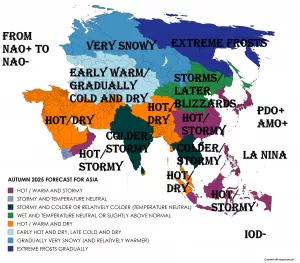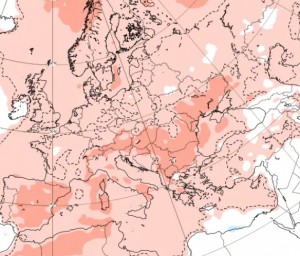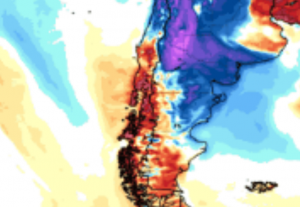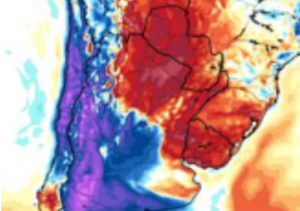
Turkey is experiencing an unmatched and extreme heatwave, with dozens of all-time and monthly records shattered across the country — including at high-altitude mountain stations. From the lowlands to peaks over 2,000 meters, temperature values defy logic, pointing to one of the most intense and anomalous heat events in Turkish meteorological history.
On July 13, temperatures soared to a staggering +48°C at 350 meters above sea level, marking one of the highest elevations ever recorded with such a temperature in Turkey. Even more astonishing, +45°C was recorded at 1,000 meters, and an unprecedented +40°C at 2,000 meters — something virtually unheard of in the climatological records of the Anatolian highlands.
At Cizre, a well-known hot spot in southeastern Turkey, the mercury hit +47.7°C, pushing close to national extremes and adding to the long list of towns enduring severe, record-breaking heat. Yet the real anomalies are coming from elevated regions, where the heatwave has bulldozed traditional thermal limits.
In Niğde, a long-established mountain station at moderate altitude, the thermometer surged to +38.8°C, setting a new July record for the location and illustrating how deeply this heatwave has penetrated traditionally milder zones. Meanwhile, Şırnak, sitting at 1,350 meters, recorded +39.5°C, breaking its all-time heat record and rewriting its meteorological history.
To make matters worse, nighttime temperatures are offering no relief. At elevations above 1,000 meters, minimum temperatures have stayed above +32°C, with some locations seeing heat that barely dropped below 35°C even at midnight. These oppressive night conditions are extremely dangerous for human health, increasing the risk of heatstroke, sleep disruption, and physiological stress — especially in areas lacking widespread air conditioning.
The synoptic setup driving this event includes a massive and stagnant subtropical ridge, combined with advection of Saharan and Mesopotamian heat, which has created an extended period of clear skies, bone-dry air, and extreme surface heating. Ground temperatures in southeast Turkey have been observed exceeding 60°C, severely stressing infrastructure, agriculture, and ecosystems.
This extraordinary heat is not just setting records — it’s smashing altitudinal expectations, pushing values typically seen in desert basins into plateau and mountain regions, where July daytime averages are normally in the upper 20s to low 30s. With the heatwave forecast to persist and potentially intensify, more all-time records may be broken in the coming days.
Turkey now joins a growing list of countries in Europe, the Middle East, and North Africa experiencing unprecedented heat in 2025, further evidence of escalating climate extremes in traditionally temperate and transitional regions.

Illustration picture: https://waradana.com/english/article/115677-iraq-turkish-cizre-dam-project-harms-our-water-supply


























